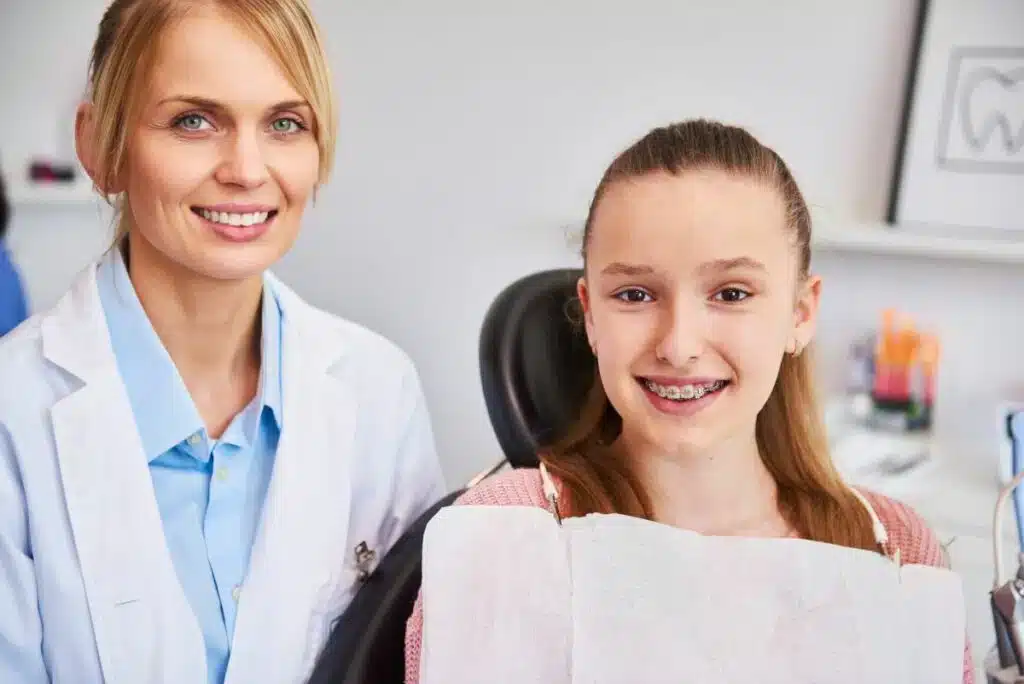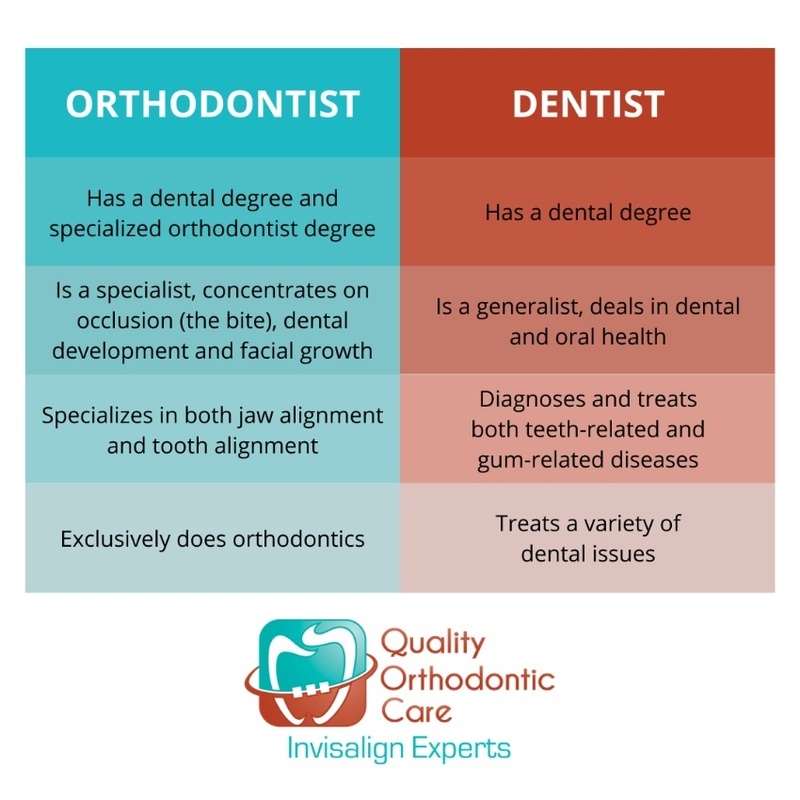The Ultimate Guide To Causey Orthodontics
The Ultimate Guide To Causey Orthodontics
Blog Article
What Does Causey Orthodontics Do?
Table of ContentsCausey Orthodontics for DummiesThe Of Causey OrthodonticsSome Of Causey OrthodonticsCausey Orthodontics Fundamentals ExplainedExamine This Report about Causey OrthodonticsCausey Orthodontics - TruthsMore About Causey Orthodontics
What is the difference between a dental practitioner and an orthodontist? All dentists, including orthodontists, treat the teeth, gum tissues, jaw and nerves.
Orthodontists and dental professionals both give dental treatment for patients. Orthodontists can operate in an oral workplace and offer the same therapies as various other dentists. So you can believe of both medical professionals that deal with gum and teeth problems. The main difference is that becoming an orthodontist requires a particular specialty in treating the misalignment of the teeth and jaw.
The Causey Orthodontics Diaries
An orthodontist is a dentist that has actually undergone training to specialize in the medical diagnosis, prevention and treatment of abnormalities in the jaw and teeth. They can also recognize prospective troubles in teeth placement that may develop when problems are left without treatment (orthodontist expert).
This includes all the essential education and learning to become a general dental professional. According to the American Student Dental Organization (ASDA), it suggests you will require to have either a Doctor of Medication in Dental Care (DMD) or a Physician of Oral Surgical Treatment (DDS). In various other words, orthodontists need to complete oral institution and after that obtain an orthodontics specialty education and learning.
Some orthodontists likewise obtain their masters in craniofacial biology. Causey Orthodontics (https://www.semfirms.com/profile/causey-orthodontics-0). Lots of oral colleges offer restricted orthopedic training and direction, which is why basic dental practitioners require to go to orthodontic college after college graduation. Orthodontic residency programs supply extensive training for this kind of oral expertise. These programs concentrate on two specific areas or disciplines: Dentofacial Orthopedics: This research study focuses on assisting teeth and jaw growth.
The 9-Minute Rule for Causey Orthodontics

 The overall goal of an orthodontist is to boost a person's bite. Not every person is birthed with straight teeth, and an orthodontist will certainly make certain that patients get evenly spaced straight teeth.
The overall goal of an orthodontist is to boost a person's bite. Not every person is birthed with straight teeth, and an orthodontist will certainly make certain that patients get evenly spaced straight teeth.
Some Known Questions About Causey Orthodontics.
The American Organization of Orthodontists recommends your first check up by age 7. You'll need to see your orthodontist if you have a misalignment in your teeth, likewise referred to as malocclusion. Likewise, if you observe uneven bite patterns, a somewhat askew jaw, or when your teeth are overcrowded, you will likely need orthodontic therapy.
At Advanced Orthodontics, we give patients with a alternative treatment experience. Furthermore, we provide flexible therapy routines, adaptable repayment alternatives and an enjoyable, pleasurable experience. Phone call ( 480) 357-4900 today for even more info and routine a consultation.
An orthodontist is a dental practitioner trained to diagnose, protect against, and treat teeth and jaw abnormalities. Orthodontists work with individuals of all ages, from children to grownups (https://gravatar.com/causeyortho7).
Fascination About Causey Orthodontics
Malocclusion, or misaligned teeth, can cause dental concerns, including dental cavity, periodontal condition, and challenging or unpleasant eating. Not everybody is birthed with straight teeth. If you have a poor bite or huge rooms in between your teeth, you might intend to get in touch with a dental professional specializing in orthodontic care.
(Photo Credit Rating: DigitalVision/Getty Images) Orthodontists utilize taken care of and detachable oral tools, like dental braces, retainers, and bands, to alter the placement of teeth in your mouth. Orthodontic therapy is for oral abnormalities, including: Uneven teethBite issues, like an overbite or an underbiteCrowded teeth or teeth that are as well much apartJaw misalignmentThe objective of orthodontic treatment is to enhance your bite.
Causey Orthodontics Can Be Fun For Everyone

, however not all dentists are orthodontists. They concentrate on 2 locations: Just how to effectively and securely move teeth Just how to appropriately lead advancement in the teeth, jaw, and faceOnce an orthodontist has finished training, they have the option to come to be board licensed.
Malocclusion leads to tooth overcrowding, a twisted jaw, or irregular bite patterns. Malocclusion is generally treated with: Your orthodontist connects metal, ceramic, or plastic square bonds to your teeth.
Our Causey Orthodontics Ideas
If you have only minor malocclusion, you might be able to utilize clear braces, called aligners, rather of traditional dental braces. Some individuals require a headwear to assist relocate teeth into line with stress from outside the mouth. After dental braces or aligners, you'll need to use a retainer. A retainer is a customized tool that keeps your teeth in location.
Report this page